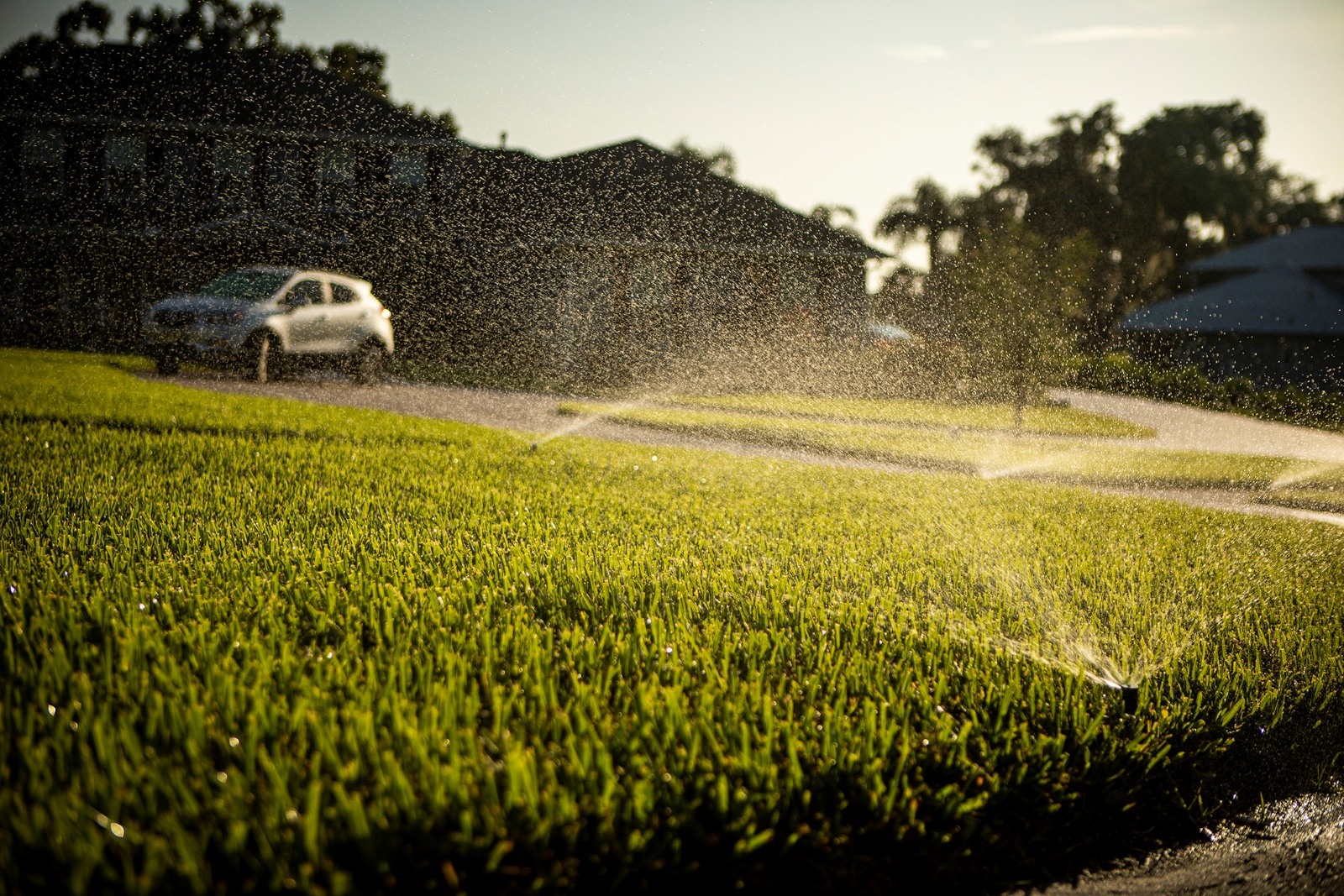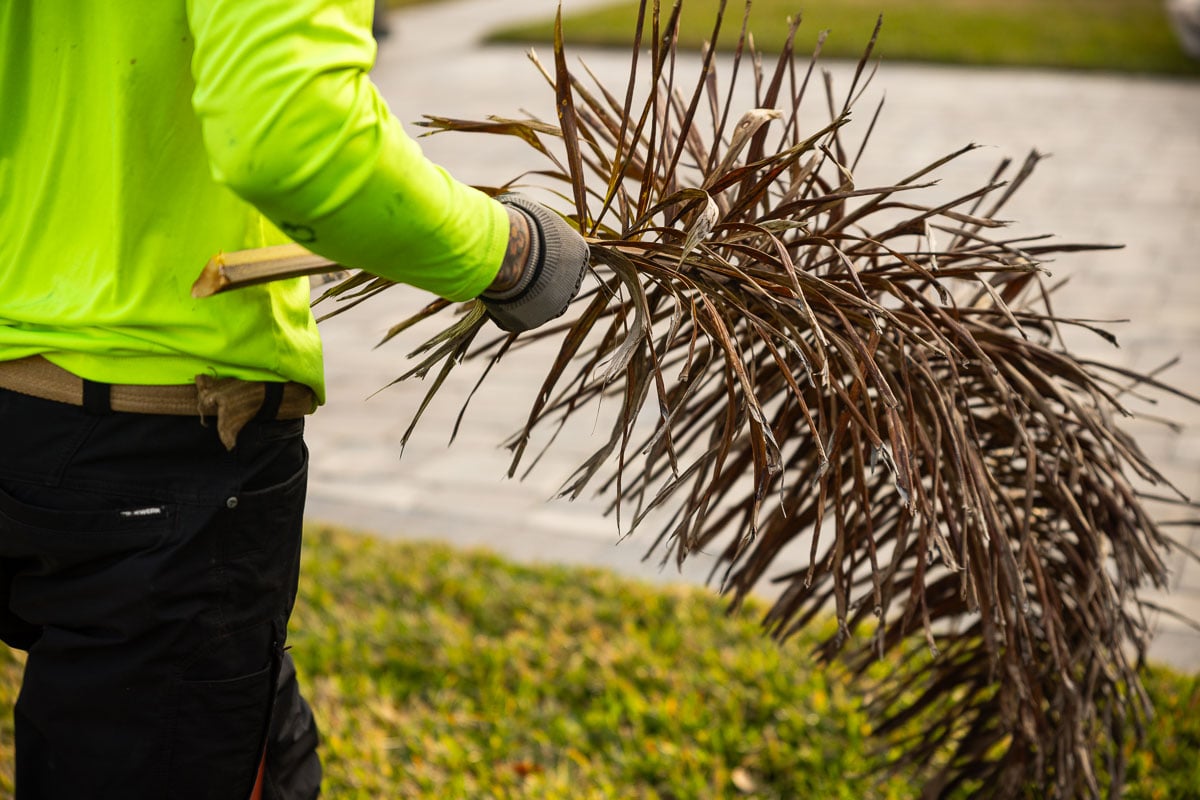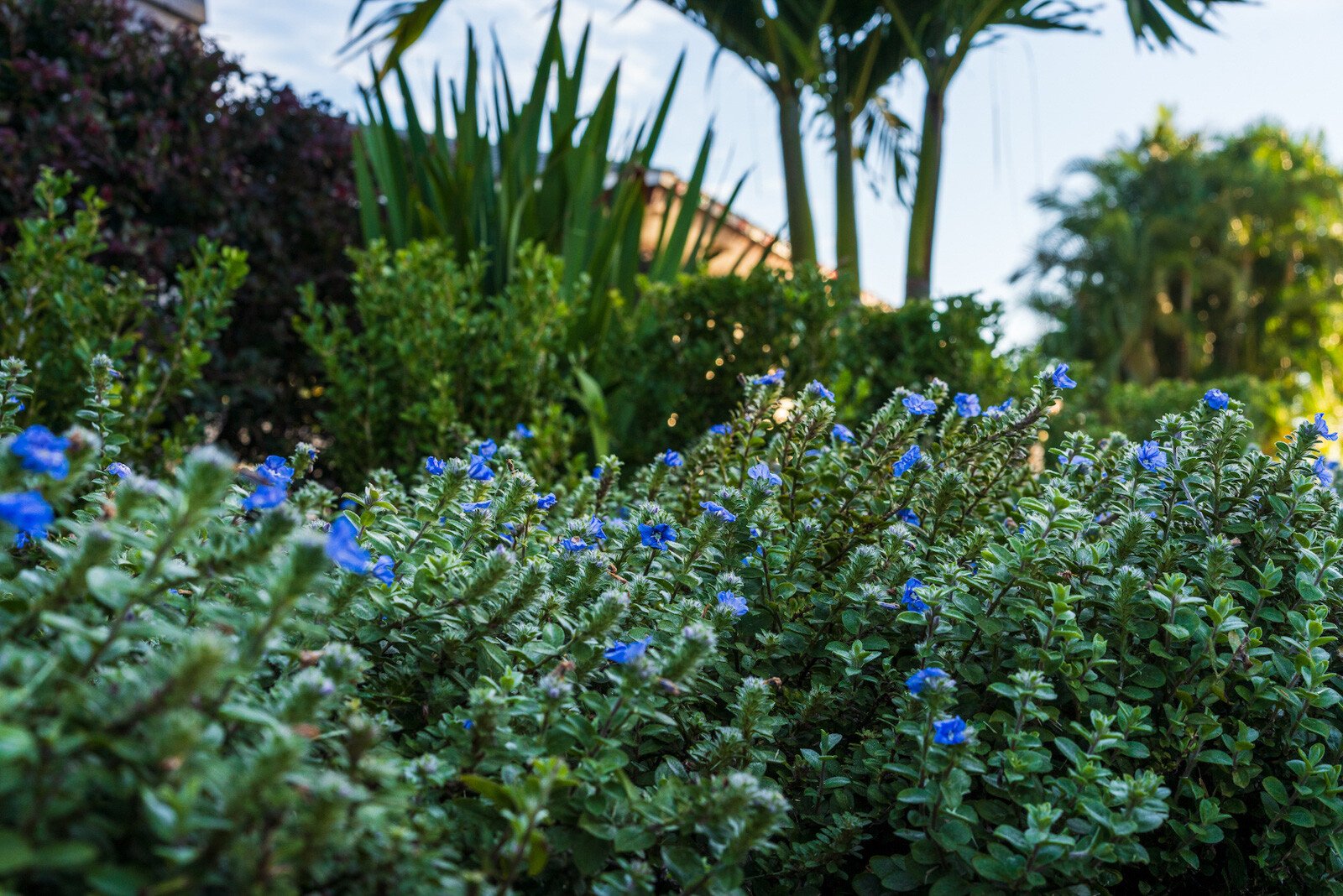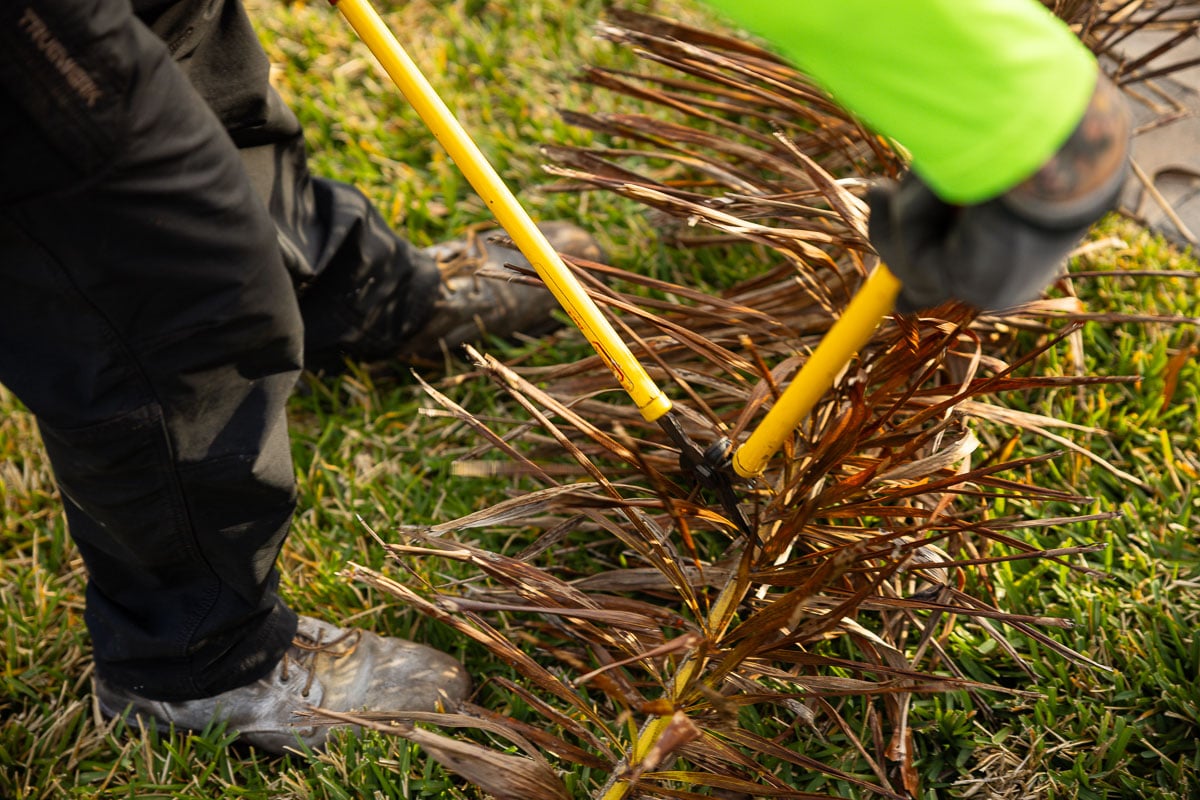Heavy rain is part of life in Orlando, with an average of 51 inches a year easily topping the national average of 37 inches.
Your landscaping needs to be ready for it, from plants that don’t mind a steady soaking to pavers that won’t make your feet slide right out from under you.
Parts of your landscape, from heavily shaded areas to areas at the bottom of a slope, might hold moisture even when it isn't raining.
Is it hard to find pavers that are safe for wet areas? Are there slip-resistant pavers?
Learn More
- Most pavers aren’t too slick
- Cleaning slippery organic material from pavers
- How anti-slip sealer can help
- Permeable pavers prevent water pooling
- Proper drainage can help
Most concrete pavers have enough texture to help keep your footing when they’re wet. However, anti-slip sealers are available that add traction and extra safety to pavers.

Damp, shady areas can encourage organic growth that cause slick pavers, so regular cleaning is a good idea. And if you have an area that’s extra soggy, permeable pavers add helpful extra drainage and safety.
Let's read more about pavers that are safe for wet areas.
The Good News: Most Pavers Aren’t Too Slick
Most typical concrete pavers in Central Florida used for driveways or patios aren’t too slippery, even when they’re wet.
Concrete pavers with a rough or textured finish are less slippery than smooth or polished pavers because they provide more traction.
What about other types of pavers, like natural stone? While the glossy surface of polished natural stone pavers makes them slippery when wet, honed limestone pavers have a matte, textured surface that provides good grip and slip resistance, even when wet.
A skilled landscape designer has access to hundreds of types of pavers and can help you choose pavers that are safe for wet areas.
When Slippery Stuff Coats Your Pavers
Dirt, algae, moss, and other organic matter can make pavers in wet areas more slippery.
Shady or damp areas, like under trees or near water features, are especially prone to organic growth, so pavers in these areas need occasional cleaning to prevent the buildup of slippery stuff.
Power washing or scrubbing the pavers with a mild detergent and water can remove slick organic growth.
Specialized Paver Sealer Can Help
All pavers should be sealed after installation, to protect them from fading and weathering.
Paver sealer also helps keep weeds from sprouting in the sand between your pavers, repels stains and deters pesky ants from building mounds in those spaces between pavers.
That’s all standard paver sealer stuff.
But anti-slip sealers are available that add traction and safety to pavers. Anti-slip additives increase the friction on the surface of the pavers.
Pavers for Rainy Areas: Try Permeable Pavers
Permeable pavers allow rainwater to seep through, rather than pool and flood your yard or property. They’re designed with wider gaps between the stones and spacer bars to let water easily drain through the cracks and soak into the soil below.
Bonus: permeable pavers help the environment, too.

Pollutants like chemicals, petroleum products, fertilizers, and other contaminants accumulate on solid surfaces like concrete pavers. Then, when it rains, these pollutants wash off and enter the stormwater system and the environment.
Permeable pavers reduce that storm water runoff.
Pavers in Wet Areas: How Proper Drainage Helps
Improving drainage around concrete pavers can help minimize slipperiness by reducing the accumulation of standing water.
If you have puddles that don’t evaporate, or water pools on your driveway or patio after it rains, you have a bigger problem than slipper pavers.
Make sure you have proper grading and slope away from the pavers so water drains efficiently, preventing puddles and standing water that cause slip hazards.

This is where having a full-service landscaping company comes in handy. Paver installers can steer you to the best pavers for rainy areas, but a full-service landscaping company can also help you solve water management issues that go deeper than what types of pavers you should use.
You might need collection boxes installed, or a French drain. Save time and hassle by partnering with skilled landscaping pros who can help with all your needs.
Ready for Quality Paver Installation in Central Florida? Trust Ground Source
No matter what types of pavers you need, we’d love to help.
Ground Source pros make the whole process go smoothly, from brainstorming ideas at your kitchen table to showing you samples of pavers perfect for your situation to walking you through the project and keeping you informed.
Need some drainage help, too? We’re on it.
Let’s get started.
Are you ready to enjoy the vibrant, impressive landscape you've always wanted? Request a quote today! We’ll help you review your options and then make a great decision.







